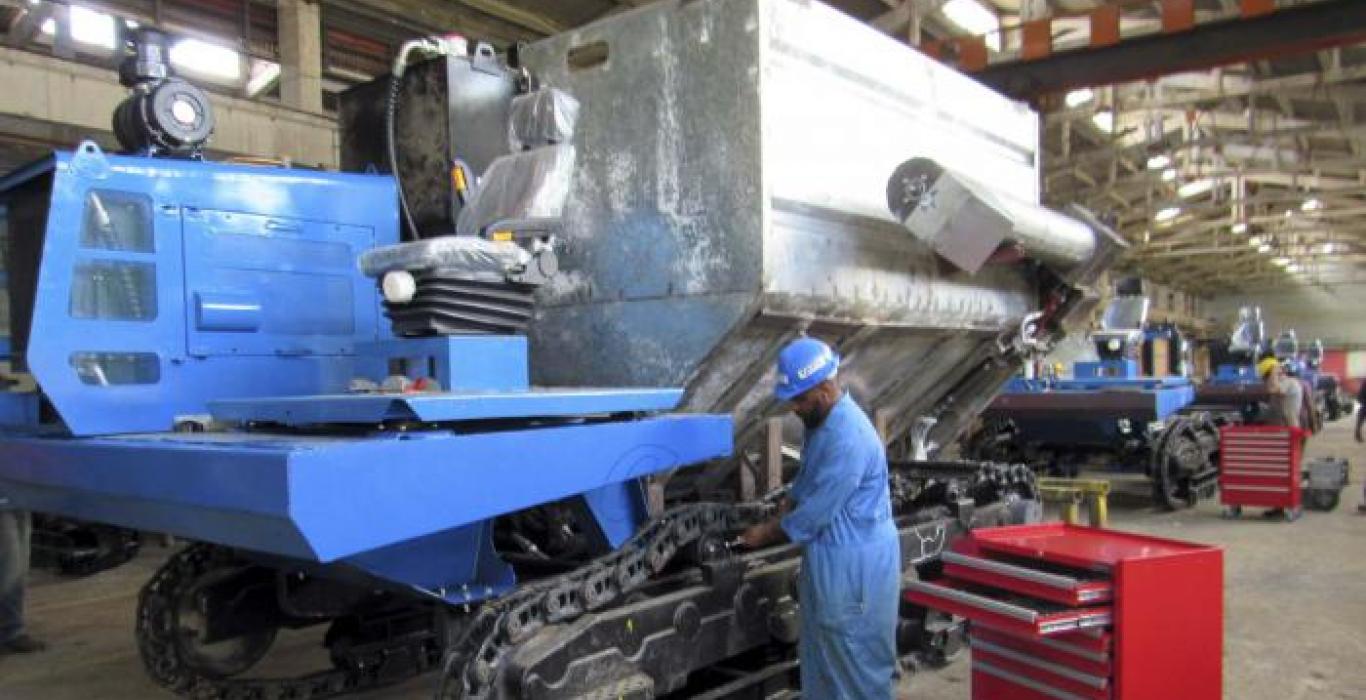New Cuban teams for the rice program

The new equipment is ideal for work in high humidity conditions.
Considered a novelty in the national industrial sector dedicated to the manufacture of agricultural implements and equipment, the self-propelled transporters for the cultivation of rice, with a capacity of seven tons, will soon be part of the entities that produce this cereal in the country.
In the UEB Factory of Agricultural Implements 26 de Julio, belonging to the Holguín Mechanical Company, the assembly of the first ten units of the Zero Series takes place, which has its antecedent in a prototype created by Cuban specialists, who have had the competition of a company from the People's Republic of China.
To finalize the production process, 60% of imported components are used, including engines, pumps and taxi elements, while the rest are manufactured and designed in the assembly entity, highlighting the metallic structures corresponding to the chassis, tanks, engine support platforms and parts of mats.
The engineer Julio Gallego Torres explained that it is a unique medium, ideal for work in conditions of high humidity, as is the case in Cuba, where equipment of the same use designed to be towed is not operational.
Of its technological innovations, it highlighted its operation through hydrostatic systems, which is made possible by the installation of an internal combustion engine that makes it possible to operate a series of hydraulic motors.
“They are machines designed to increase productivity. They will receive the rice from the large combine harvesters and take it to the vehicles waiting next to the fields. This way the combines avoid the stops of the cuts, which occur when they are the ones that deliver directly to the vehicles, "he explained.
The systematic contribution of the "July 26" to the program is also appreciated in the delivery of batches of self-propelled transport with a capacity of 3.5 tons, plows and harrows for land preparation and cultivation, in addition to carts of various uses .